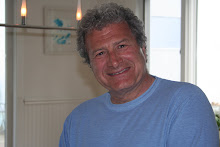Revolution, something going around and around like a record, or the violent transfer of power and property in the nature of an idea.Clearly this blogg will concern itself with the latter definition. Two questions come to mind when I read about the recent fall of the Tunesian government.One,is there a real possibility this revolt will spread throughout the Islamic world in Africa and across the Red Sea to Asia Minor? Two,will the rapid communication and dissemination of ideas made possible by bloggs, Facebook, Twitter, and text messagaging be the
catalyst that can change the Tunesian spark into a pan Islam wildfire?
Winston Churchill said "the longer you look back the farther you can see ahead," and so with this advice I looked back at the year 1848,a time when widespread revolution in Europe brought down some corrupt and uncaring monarchies,which were created and supported by the 1815 Congress of Vienna which celebrated the final defeat of Napoleon and the French Revolution ideals of equality and fraternity.
One important factor in the 1848 revolts was the "social question", incredible poverty and misery under these regeimes. The roots of revolt in Tunesia appears to be similar; a corrupt ruling family in power for years whose members have become rich while the citizens suffer terrible poverty and little hope of employment. The parallels continue when I look at how small a starting place is Tunesia in the Arab world because the spark in 1848 was an island just a few miles north ,Sicily. Then part of the Kingdom of the Two Sicilies, the successful uprising quickly spread to the Capitol of the Kingdom, Naples with similar success. In one month the freedom fire arrived in Paris resulting in the abdication of the King, Louis-Philippe, and then on to Berlin,Budapest, and Vienna. As of today the freedom riots have moved to Egypy and Yemen with the students spearheading the conflict. Soon, I am sure, we will see women and children supplying the rioters with food and water, a sure sign of public support.
Now for the second question. In 1848 news of the riots took days to get from one European Capitol to the other. During the riots in Milan protestors, in order to observe the movement of government troops, climbed the bell towers and sent down bulletins every hour. "Instead of wasting time descending the stairs they attached their reports to small rings which they lowered at the end on an iron wire".(Ginsborg,Daniele Manin) Primitive by modern standards but effective, and now to be compared to INSTANT messaging. Will it take a year for this fire to spread? I don't think so, and the next two weeks will be pivotal, depending a great deal in whiter the local armies willingness to shoot at the rioters. Perhaps, in conclusion, the first definition has some relevance. Billy Joel's "We didn't start the fire, Its been always burning since the worlds been turning". ( for anyone interested in reading a great account of 1848 see mike rapport's book)
Sunday, January 30, 2011
Sunday, January 23, 2011
The Winter of our Discontent
Whether you know this phrase from the opening line of William Shakespear's Richard III(Now is the winter of our discontent/Made glorious summer by this sun of York)or from the title of John Sieinbeck's last novel written in 1961,it has taken on a more personal meaning for those of us who live in the northeast because of a pesky procession of major snow storms. Is it the result of the El Nino phenomenon, Artic and Antartic ice melting, or simply Mother Nature? The cause of this weather pattern becomes almost less important than finding a way to cope with the recurrent progression of snow, ice and slush. For me,however,this winter took on a more pleasant meaning last night as I walked along an oak and pine tree lined road made white by a recent thick layer of snow. I looked up at the cloudless winter sky; the Hunter,Orion to my left, and a brilliant full moon to my right, revealing to the Hunter and me snow covered trees and ground all around enhanced by moonlight.
Saturday, January 8, 2011
Cultural histories
The first of this genre that I read was David Halberstam's The Fifties. Now I can't get enough. One of the fascinations is the derivation of words or phrases. My latest read was 1959 The Year That Changed Everything by Fred Kaplan. And so I discovered the derivation of the word beatnik.Herb Caen,columnist for the San Francisco Chronicle, on the day after Sputnik was launched, wrote that the beats(Kerouac and Ginsberg)werevas far out as Sputnik. And so dubbed them "beatniks".
Subscribe to:
Posts (Atom)


